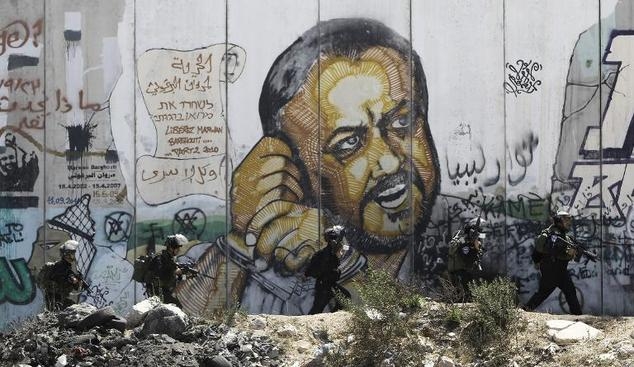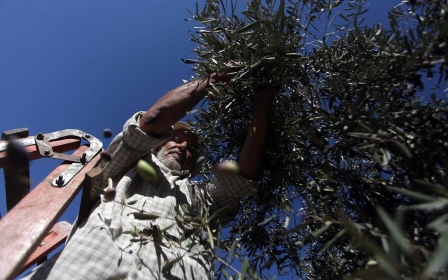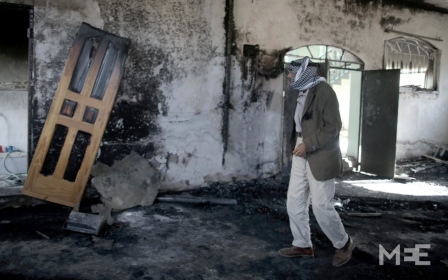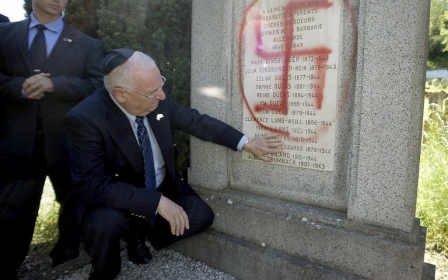Marwan Barghouti placed in solitary confinement after calling for third intifada

Jailed Palestinian leader Marwan Barghouti has been placed in solitary confinement after publishing a letter calling for a return to "armed resistance" against Israel, a Palestinian NGO said on Wednesday.
The Ramallah-based Palestinian Prisoners' Club said in a statement that Barghouti had been placed in solitary as a "punishment" for a letter published on Tuesday on the 10th anniversary of the death of veteran Palestinian leader Yasser Arafat.
A spokesman for Israel Prisons Service confirmed Barghouti had been placed in solitary but said it was because he had given interviews to the press.
"Marwan Barghouti was sentenced yesterday to seven days of isolation and handed a fine for having given media interviews, which he is not allowed to do," he said.
In the letter, Barghouti said "choosing global and armed resistance" was being "faithful to Arafat's legacy, his ideas and his principles." He also urged the Palestinian leadership to "put an immediate end to security cooperation" with Israel.
"Palestinian Mandela"
Marwan Barghouti was not well-known among Palestinians until he came to prominence as a leader of the second Intifada.
But his arrest by Israel in 2002 and conviction on five counts of murder two years later turned him into a household name.
Barghouti enjoys widespread support from all Palestinian factions and, despite currently being in an Israeli prison, is considered a favourite to succeed Mahmoud Abbas as President of the Palestinian Authority.
Over the years he has spurred on Palestinians in speeches, condoning the use of force to expel Israel from the West Bank and Gaza Strip.
"While I, and the Fatah movement to which I belong, strongly oppose attacks and the targeting of civilians inside Israel, our future neighbour, I reserve the right to protect myself, to resist the Israeli occupation of my country and to fight for my freedom," he wrote in the Washington Post newspaper in 2002.
"I still seek peaceful coexistence between the equal and independent countries of Israel and Palestine based on full withdrawal from Palestinian territories occupied in 1967," he added.
In 2004, Barghouti was convicted on five counts of murder for the deaths of four Israelis and a Greek monk, as well as attempted murder, conspiracy to murder, and membership of a terrorist organisation.
Throughout his trial, he refused to recognise the legitimacy of the Israeli court. His lawyers insisted he was only a political leader, and sought to turn the process into a trial of Israel and its occupation of Palestinian territory.
Even from his prison cell, Barghouti has remained an important Palestinian political figure.
He has been called by some the "Palestinian Mandela."
He helped negotiate, using his mobile phone, a unilateral truce declared by the main Palestinian militant groups in June 2003.
The prospect of Barghouti's release has divided Israel, with some cabinet ministers arguing that as a reformist who could unite the rival Palestinian factions, he offers the best prospect for peace should Mr Abbas step down, and others saying someone convicted of five murders should never walk free.
New MEE newsletter: Jerusalem Dispatch
Sign up to get the latest insights and analysis on Israel-Palestine, alongside Turkey Unpacked and other MEE newsletters
Middle East Eye delivers independent and unrivalled coverage and analysis of the Middle East, North Africa and beyond. To learn more about republishing this content and the associated fees, please fill out this form. More about MEE can be found here.




